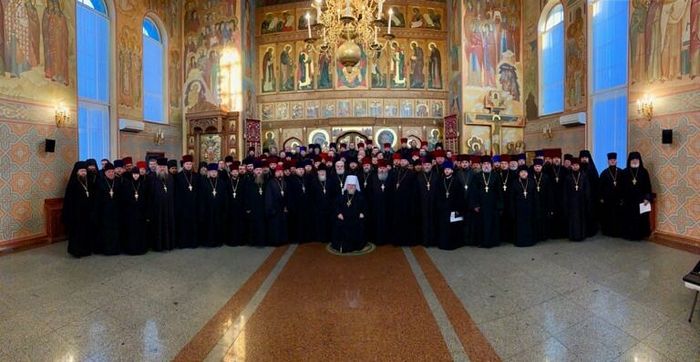Donetsk Diocese declares its loyalty to canonical Ukrainian Church and primate
 Despite the ongoing persecution and propaganda against the canonical Ukrainian Orthodox Church that has only
Despite the ongoing persecution and propaganda against the canonical Ukrainian Orthodox Church that has only
A clergy meeting of the Donetsk Diocese was held on Sunday at the St. Nicholas-St. Basil Monastery in the village of Nikolske under the chairmanship of His Eminence Metropolitan Hilarion of Donetsk and Mariupol.
In addition to administrative issues of internal Church life, the clergy also discussed issues of devotion to the canonical Church and its primate His Beatitude Metropolitan Onuphry of Kiev and All Ukraine, with those present expressing their loyalty and devotion to Christ in His Church, according to the site of the Donetsk Diocese.
***
The same support for the canonical Church and Met. Onuphry has also been expressed by the Dioceses of Gorlovka, Khmelnitsky, Volyn, Dzhankoi, Mogilev-Podolsky, Uman, Ovruch, Berdyansk, Nikolaev, Nizhyn, Nova Kakhovka, Izium, Crimea, Chernigov and Novgorod-Siversk, Kirovograd, Zhytomyr, Lugansk, Mukachevo, Alexandria, Sumy,
Of those, the Severodonetsk, Voznesensk, Tulchin, Rivne, Zhytomyr, Nizhyn, Kamenka, Konotop-Glukhov, Simferopol, Mogilev-Podolsky, and Tulchin Dioceses have reaffirmed their loyalty to the Ukrainian Church yet again following December 15’s scandalous “unification council.”
Source: Orthochristian.com






